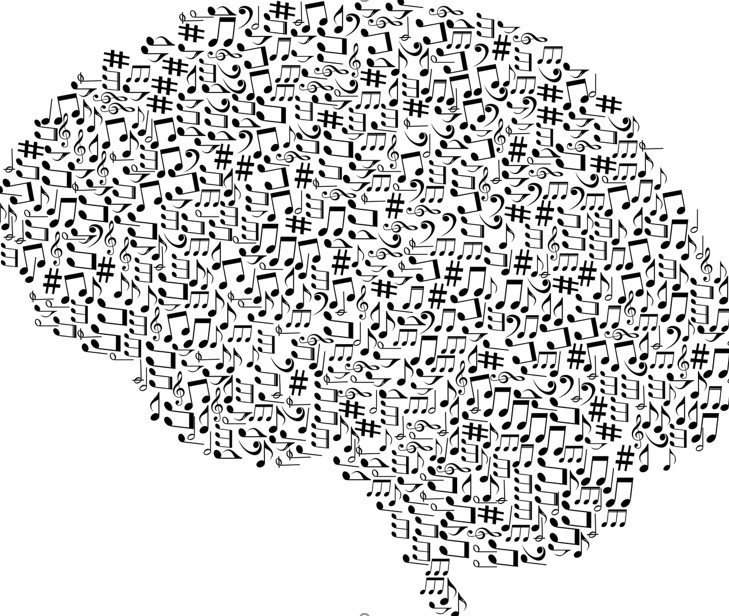How to make computers create music?

September 1, 2020
Artificial intelligence has been used to model many aspects of creativity and general art. Music has not been an exception. The first steps on this path were to reproduce melodies from a training set of musical pieces generated by a neural network. This evolve by implementing a change algorithm to modify input parameters, and then the network was able to randomly generate new music in a highly controlled manner.
Today is not about just neural network, but most AI methods are used in Artificial Intelligence and Music (as known as AIM) which is, in few words, music composition made by an algorithmic AI. In this article, we introduce how to make computers create music? or actually it is more fair to say how computers do music?
Do computers can create music by themselves?
As we talking in what is computer-generated art and how it works?, and without being controversial, actually computers can create art in general. Computational creativity in music domains has focused on both sheet music generated for use by human musicians and music full generated by computers.
Technique of using algorithms to create music is called Algorithmic Composition. This term is generally reserved for the use of formal procedures to make music without human intervention beyond some input parameters they can give. Many known models have been used as base materials for AIM like fractal, statistic models, L-systems, etc.
Algorithmic composition has been used for centuries to compose music. This are classified in computer-composed music and computer-aided music. Music can be considered fully computer-composed when algorithm is capable of making decisions by itself during the creation process. Another classification is based on examine composition processes results: they can either provide notation information for other instruments or provide an independent way of synthesizing sound. There is also the creation of algorithms for both the notation data and the sound synthesis.
One way to categorize composition algorithms is by their structure and data processing mode: translation models, mathematical models, grammars, evolutionary methods, knowledge-based systems, learning systems and hybrid systems.
How to make computers create music?
There are many software applications over the internet that we can find to creating, performing, learning, analyzing, researching and publishing music. Artificial intelligence also drives an interactive composition technology, wherein a computer composes music in response to the performance of a live musician. There is no need of artificial intelligence knowledge or computer science career in order to use it:
- Computer Accompaniment (Carnegie Mellon University) is a computer music and interactive performance technology developed by Carnegie Mellon University, which main target is to enhance human musical experience and creativity.
- ChucK is a cross-platform language, text-based developed at Princeton University that allows music composition, real-time synthesis, performance and analysis.
- MorpheuS is a system developed by University of London that uses an optimization method based on a variable neighborhood search algorithm to morph existing template pieces into novel pieces.
- Google Magenta is a research project by Google that explores machine learning role in creating art and music process.
- Amper Music is a cloud-based platform designed to simplify the process of creating soundtracks for movies and video games, as it produces AI generated algorithms that help users create music in a variety of music genres.
- EMI is a software capable to analyze and generalize from existing music by a human composer to generate new musical compositions in the same style.
- Ludwig is an automated composition software based on tree search algorithms, that creates melodies based on classical music theoretical principles.
- Melomics is a system to music composition based on bio-inspired methods without any human intervention.
AIVA
Artificial Intelligence Virtual Artist (AIVA at https://www.aiva.ai/) is an Artificial Intelligence electronic music composer already recognized as an artist by Société des auteurs, compositeurs et éditeurs de musique (SACEM). AIVA specializes in original and personalized soundtracks composition for any type of media. It is able to understand concepts from music theory and compose by itself. AIVA algorithms are based on in-depth learning architectures.
What is relevant about AIVA is that really creates music. It is studied 30.000 historical music pieces from Metallica to Bach. AIVA succeeds in reproducing this cognitive process starting from decades of knowledge and musical studies and reducing it to a few hours of computational process. Music is made by some standards, but most by personal emotion. This is where human acts by indicating to AIVA the desired features, such as emotional state or mood, notes density, composition style and historical period, crafting it to fit their content with no additional musical knowledge or skills needed. The final result is an original composition.
AIVA enables composers and creators to create originals pieces from the scratch or upload their work to create new variations. Besides enabling its users to create music from scratch, it can also be used to produce variations of existing songs. Music engine that powers AIVA makes the production of corporate or social media videos much easier, as it eliminates the need to go through the music licensing process.
At the end
Now we know how to make computers create music and have access to some tools does not imply that we are already composers comparable to Beethoven. This is a very controversial matter. But we cannot deny and is a fact that without further knowledge (beyond a hopefully good music taste) we are able to create music. In spite of sometimes artificial intelligence might be generate fears of disruption as its influence is likely to spread significantly and change the way we experience music now and on.
Hence, it is understandable that independent composers and producers, who work creating original music might have a very frightening perspective just because a technology that can reproduce their work that is comparable in quality.
Even though similar innovations have been disruptive in their early stages, eventually they are incorporated as new tools that complement and improve our human capabilities. When seeing AI as an extension to our creative process we can predict that industry will continue to evolve and will soon become a collaborative environment where man and machine can work together to make music. Artificial intelligence is changing the way artists think about music creation, forecasting advanced opportunities where creative musicians could have to work alongside machines creatively. Many composers that already working with AI hope that the technology will become a democratizing force and an essential part of everyday musical creation. Furthermore, many believe that it could make music composition more accessible for a wider audience and help forming a completely new music industry culture.
So, now we can make our own song melody!








